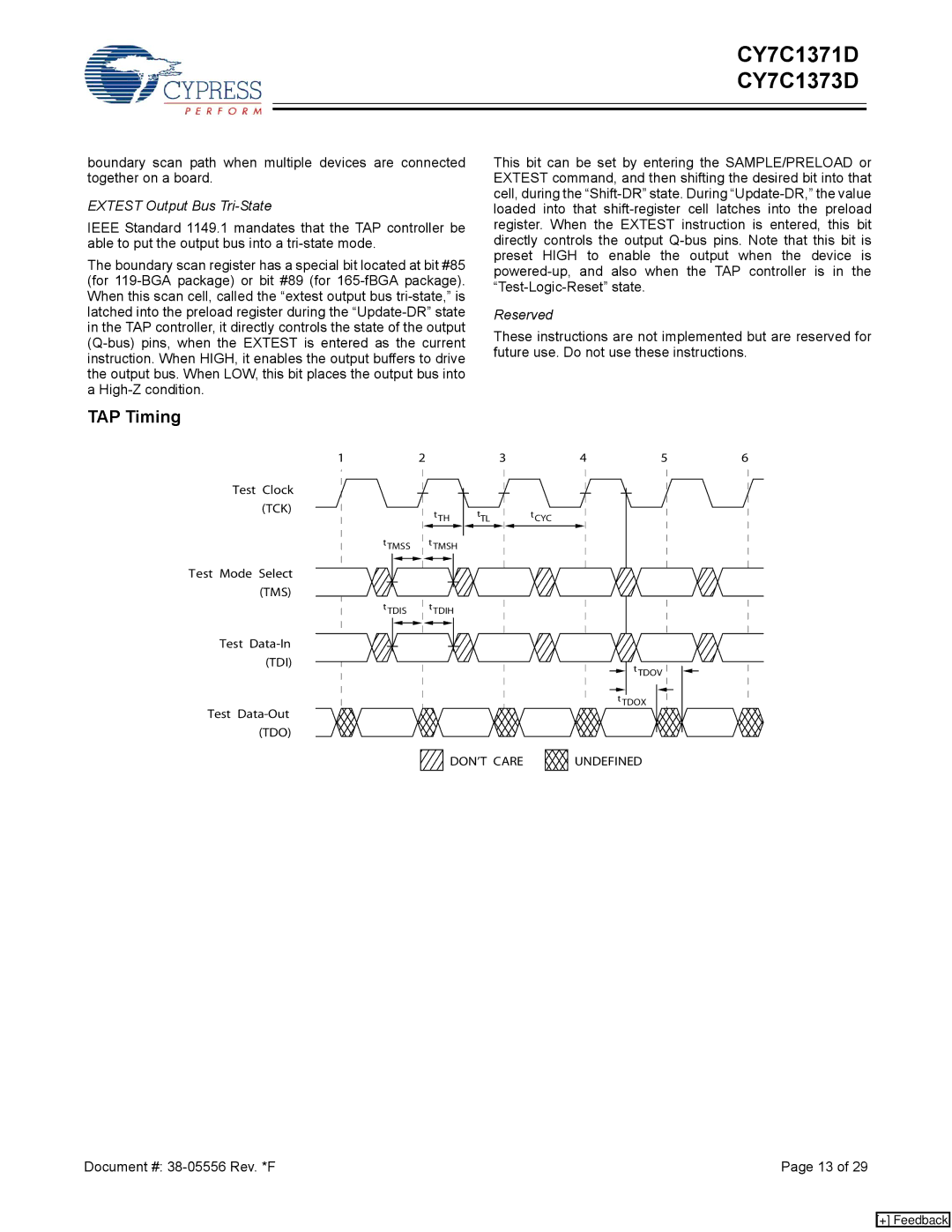
CY7C1371D
CY7C1373D
boundary scan path when multiple devices are connected together on a board.
EXTEST Output Bus Tri-State
IEEE Standard 1149.1 mandates that the TAP controller be able to put the output bus into a
The boundary scan register has a special bit located at bit #85 (for
This bit can be set by entering the SAMPLE/PRELOAD or EXTEST command, and then shifting the desired bit into that cell, during the
Reserved
These instructions are not implemented but are reserved for future use. Do not use these instructions.
TAP Timing
1 | 2 |
Test Clock |
|
(TCK) | tTH |
| |
tTMSS | tTMSH |
Test Mode Select |
|
(TMS) |
|
tTDIS | tTDIH |
Test |
|
(TDI) |
|
3 | 4 | 5 | 6 |
tTL tCYC
tTDOV
tTDOX
Test
DON’T CARE | UNDEFINED |
Document #: | Page 13 of 29 |
[+] Feedback
